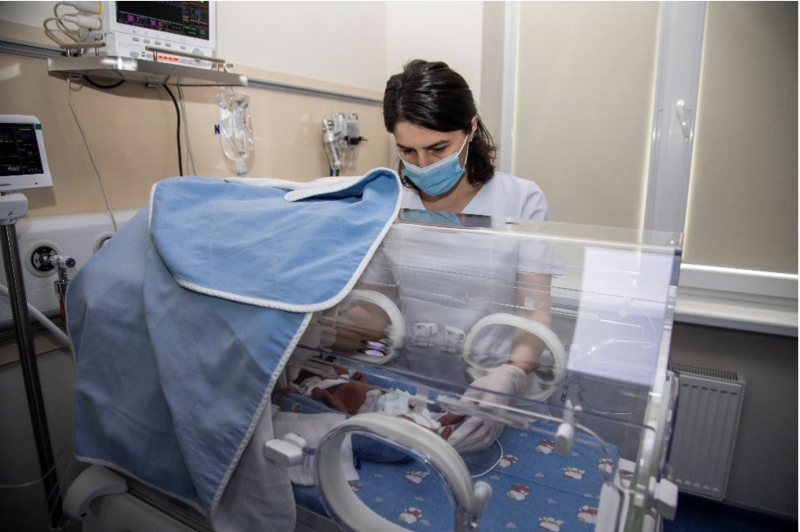
Stories from the field: Special series on the COVID-19 response – Georgia
January 29, 2021
All Regions
Georgia
Dr Irina Karosanidze, a primary health care (PHC) doctor in Georgia has long worked to shape the direction of PHC reform in the country to make health services more accessible and responsive to the needs of the population. Recently, she has been on the frontlines of a dramatic transformation in PHC delivery in Georgia; one that will hopefully have a lasting and positive impact on the lives of everyone, everywhere in the country.
”It is a question of people being able to access health services and receive health care advice when and where they need it. With the rapid acceleration of digital health services due to the pandemic, that can even be at home,” said Irina who is working closely with the Ministry of Internally Displaced Persons from the Occupied Territories, Labour, Health and Social Affairs to adapt PHC services to meet the demands of a global pandemic.
Thanks to leaders like Irina, new protocols were rapidly developed and revised, and PHC providers across the country were trained in managing mild COVID-19 infections remotely. They also learned to remotely manage patients who had been discharged from the hospital after acute infection of COVID-19.

Doctors, residents and medical students call COVID-19 patients to monitor and assess their status remotely from an online COVID-19 clinic housed in the Ministry of Internally Displaced Persons from the Occupied Territories, Labour, Health and Social Affairs.
©WHO/Vladimir Valishvili
Why is PHC important in Georgia?
Before COVID-19 struck, the Ministry was already committed to increasing the efficiency of health service delivery in Georgia and advancing universal health coverage (UHC) through strengthening the PHC system and integrating priority services. The population’s health needs were becoming increasingly complex due to the growing burden of noncommunicable diseases (NCDs) such as diabetes, cancer, heart and lung diseases. NCDs are estimated to account for a staggering 94% of all deaths in Georgia; equivalent to more than 50,000 deaths annually. It has become clear that reforms are needed at the PHC level to enable transition from a fragmented disease-centred approach to one that is more holistic, integrated and people-centred.
In November 2019, a WHO mission conducted through the UHC Partnership reviewed the Ministry’s PHC reform plans. It recommended revising the scope of services to include more preventive, people-centred services, expanding the scope of practice of nurses, and redefining the role of specialists in the PHC setting. The review found that lack of performance monitoring and misaligned payment incentives undermined the system’s overall potential. In addition, high out-of-pocket payments for medicines disproportionately affected the poorest people in the population leading to increased poverty and sometimes catastrophic spending on health.
In early 2020, the Ministry asked WHO to provide technical support to revise the PHC benefits package and payment model. This would help increase access to evidence-based prevention and treatment services and support the integration of health programmes to strengthen the PHC system. Then, COVID-19 struck.